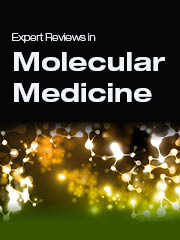Article contents
Molecular pathophysiology of psoriasis and molecular targets of antipsoriatic therapy
Published online by Cambridge University Press: 14 December 2009
Abstract
Psoriasis is a chronic inflammatory skin disease characterised by elevated red scaly plaques on specific body sites. Histologically, the plaques are defined by epidermal hyperplasia, epidermal and dermal infiltration by leukocytes, and changes in the dermal microvasculature. Differentiation and activation are disturbed in lesional psoriatic keratinocytes, and the pool of proliferating keratinocytes is increased, which is accompanied by enhanced production of proinflammatory cytokines, adhesion molecules and antimicrobial peptides. These changes in psoriatic keratinocytes are caused by altered expression of genes associated with epidermal differentiation, and by activation of signalling pathways involving signal transducer and activator of transcription 3 (STAT3), type I interferon (IFN) and mitogen-activated protein kinase (MAPK). The number of T cells, and myeloid and plasmacytoid dendritic cells (DCs) is markedly increased in psoriatic lesions. Myeloid DCs produce interleukin (IL)-23, tumour necrosis factor (TNF)-α and inducible nitric oxide synthase (iNOS), which are crucial cytokines in the pathogenesis of psoriasis. IL-23 stimulates the secretion of IL-22 by T helper 17 cells, and IL-22 induces epidermal hyperplasia. The crosstalk between keratinocytes and leukocytes via their proinflammatory cytokines creates the vicious circle of chronic skin inflammation seen in psoriasis. This suggests that optimal treatment of psoriasis needs to target pathogenic pathways in both leukocytes and keratinocytes.
- Type
- Review Article
- Information
- Copyright
- Copyright © Cambridge University Press 2009
References
References
Further reading, resources and contacts
The Medline Plus website is a service of the US National Library of Medicine and the National Institutes of Health, and provides information on various skin conditions:
http://www.nlm.nih.gov/medlineplus/skinconditions.html
The American Academy of Dermatology is the main body representing dermatologists in the USA and provides an extensive resource for public education on diseases of the skin:
The International Psoriasis Council has created a forum for psoriasis experts and health professionals to share knowledge, experiences and insights towards optimising our understanding and treatment of psoriasis.
http://www.psoriasiscouncil.org/
The National Psoriasis Foundation provides an up-to-date website with practical information for patients, doctors and researchers on current psoriasis drugs, research projects funded etc.
- 36
- Cited by


